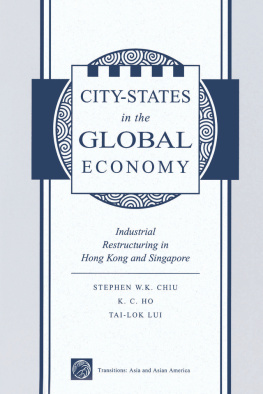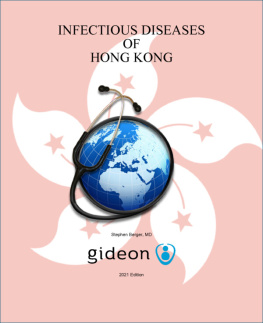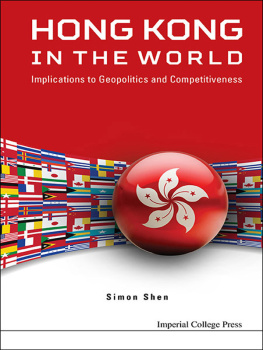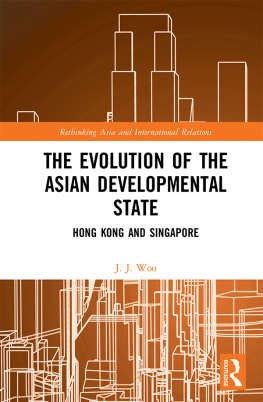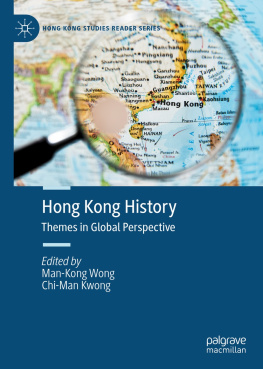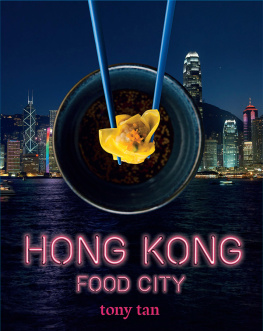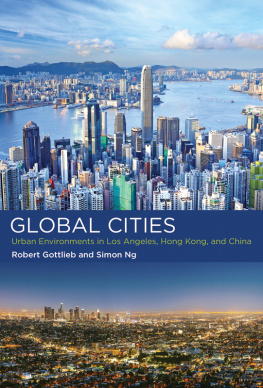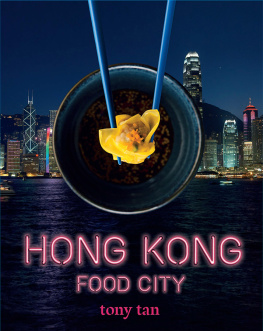City-States in the Global Economy
Transitions: Asia and Asian America
Series Editor, Mark Selden
City-States in the Global Economy: Industrial Restructuring in Hong Kong and Singapore, Stephen Wing-Kai Chiu, Kong-Chong Ho, and Tai-lok Lui
The Taiwan-China Connection: Democracy and Development Across the Taiwan Straits, Tse-Kang Leng
Trade and Transformation in Korea, 1876-1945, Dennis L. McNamara
Hidden Horrors: Japanese War Crimes in World War II, Yuki Tanaka
Encountering Macau: A Portuguese City-State on the Periphery of China, 1557-1999, Geoffrey C. Gunn
How the Farmers Changed China: Power of the People, Kate Xiao Zhou
From Plan to Market: The Economic Transition in Vietnam, Adam Fforde and Stefan de Vylder
Japanese Colonialism in Taiwan: Land Tenure, Development, and Dependency, 1895-1945, Chih-ming Ka
A "New Woman" of Japan: A Political History of Kat Shidzue, Helen M. Hopper
Vietnam's Rural Transformation, edited by Benedict J. Tria Kerkvliet and Doug J. Porter
The Origins of the Great Leap Forward: The Case of One Chinese Province, Jean-Luc Domenach
Privatizing Malaysia: Rents, Rhetoric, Realities, edited by Jomo K. S.
The Politics of Democratization: Generalizing East Asian Experiences, edited by Edward Friedman
Our Land Was a Forest; An Ainu Memoir, Kayano Shigeru
The Political Economy of China's Financial Reforms: Finance in Late Development, Paul Bowles and Gordon White
Reinventing Vietnamese Socialism: Doi Moi in Comparative Perspective, edited by William S. Turley and Mark Selden
City-States in the Global Economy
Industrial Restructuring in Hong Kong and Singapore
Stephen W.K. Chiu
K. C. Ho
Tai-lok Lui
Transitions: Asia and Asian America
First published 1998 by Westview Press
Published 2018 by Routledge
711 Third Avenue, New York, NY 10017, USA
2 Park Square, Milton Park, Abingdon, Oxon OX14 4RN
Routledge is an imprint of the Taylor & Francis Group, an informa business
Copyright 1997 Taylor & Francis
All rights reserved. No part of this book may be reprinted or reproduced or utilised in any form or by any electronic, mechanical, or other means, now known or hereafter invented, including photocopying and recording, or in any information storage or retrieval system, without permission in writing from the publishers.
Notice:
Product or corporate names may be trademarks or registered trademarks, and are used only for identification and explanation without intent to infringe.
Library of Congress Cataloging-in-Publication Data
Chiu, Stephen Wing-Kai.
City-states in the global economy: industrial restructuring in
Hong Kong and Singapore/Stephen W. K. Chiu, K. C. Ho and Tai-lok
Lui.
p. cm.(TransitionsAsia and Asian America)
Includes bibliographical references and index.
ISBN 0-8133-3635-X
1. Hong KongEconomic conditions. 2. SingaporeEconomic
conditions. 3. Structural adjustment (Economic policy)Hong Kong.
4. Structural adjustment (Economic policy)Singapore. I. Ho, Kong
Chong, 1955-. II. Lui, Tai-lok, 1958-. III. Title. IV. Series.
HC497.H6C495 1997
338.95125dc20 96-34931
CIP
ISBN 13: 978-0-8133-3635-0 (pbk)
Despite being small city-states, Hong Kong and Singapore's positions in the global industrial economy are more important than those of many larger countries. This book presents a systematic comparative analysis of how these two economies, sharing fairly similar histories, have come to develop very different paths to industrialization.
Research on East Asian economies has now settled into clear disciplinary and conceptual boundaries: statist, free market, neo-modernist, and international political economy approaches. Our argument, instead, is to suggest that history and institutions matter, and that more systematic insights can be derived by analysing the development paths countries take. The institutional approach we adopt requires us to part company with a substantial portion of the East Asian development literature which has tended to treat Singapore, Hong Kong, Taiwan and South Korea as a single, undifferentiated case the "dragons of Asia."
By moving away from the East Asian Development Model and focusing on Hong Kong and Singapore, we build our analysis around the interrelationships of three institutional spheres: the state, the financial system, and the institutions of industrial relations. We look at the institutional configuration of industrial development in the two city-states and analyse how they have followed different "logics" and paths in industrial restructuring. At the level of firms, we focus on the electronics and garment industries and demonstrate how corporate strategy in the two city-states are influenced not only by the nature of markets and characteristics of the particular industries, but also by the different institutional environments in Hong Kong and Singapore. We show in the last chapter how this comparative analysis allows us to address issues central to the development literature as well as specific problems, issues and consequences of economic restructuring for Hong Kong and Singapore.
This book grew out of a research collaboration initiated and funded by the East-West Center (Hawaii, United States). We are grateful to Won-Bae Kim and Gordon Clark for their leadership and encouragement. To the members of the "Industrial Restructuring and Regional Adjustment in the Asian NIEs" project team Gordon Clark, Won-Bae Kim, Jung-Duk Lim, Sam-Ock Park, Ching-Lung Tsay thanks for five years of collaboration. We enjoyed the discussions and the mutual learning process that went with it.
K.C. Ho acknowledges the National University of Singapore for financing the enterprise survey of Singapore firms, and for the timely sabbatical leave and financial support. He also thanks Professor Jin-Hui Ong of the Center of Advanced Studies for believing in the project enough to support a workshop at a crucial phase when researchers from the various countries needed to meet to discuss research methodology. He is grateful for the facilities provided by the Population Program of the East-West Center and the Monash Asia Institute during the initial writing phases of the book.
Stephen W.K. Chiu and Tai-lok Lui thank The Chinese University of Hong Kong for the internal grants which supported the project on economic restructuring. They also thank Terence Poon for his assistance in organizing the survey on enterprise strategy. Tai-lok Lui was a visiting scholar at Robinson College, Cambridge University on the CUHK-Robinson College Exchange Programme when this book project started. He would like to thank Robinson College for its hospitality and The Chinese University of Hong Kong for its support of his sabbatical leave.
We acknowledge Elsevier Science Limited for its kind permission for reproducing from Political Geography, Vol. 15, Nos. 7/8.
We thank the following individuals with whom we had the wonderful opportunity to discuss our project and enjoyed the benefit of their views: Chieh-hsuan Chen, Beng-Huat Chua, Michael Douglass, Kuniko Fujita, Cheng-shu Kao, Hagen Koo, Reginald Kwok, David Levin, John McKay, Yoshio Okunishi, Tony Tam, Ern-Ser Tan, Alvin So, Michael Webber. We are particularly grateful to Mark Selden for his most valuable comments on our drafts and encouragement throughout this project.

